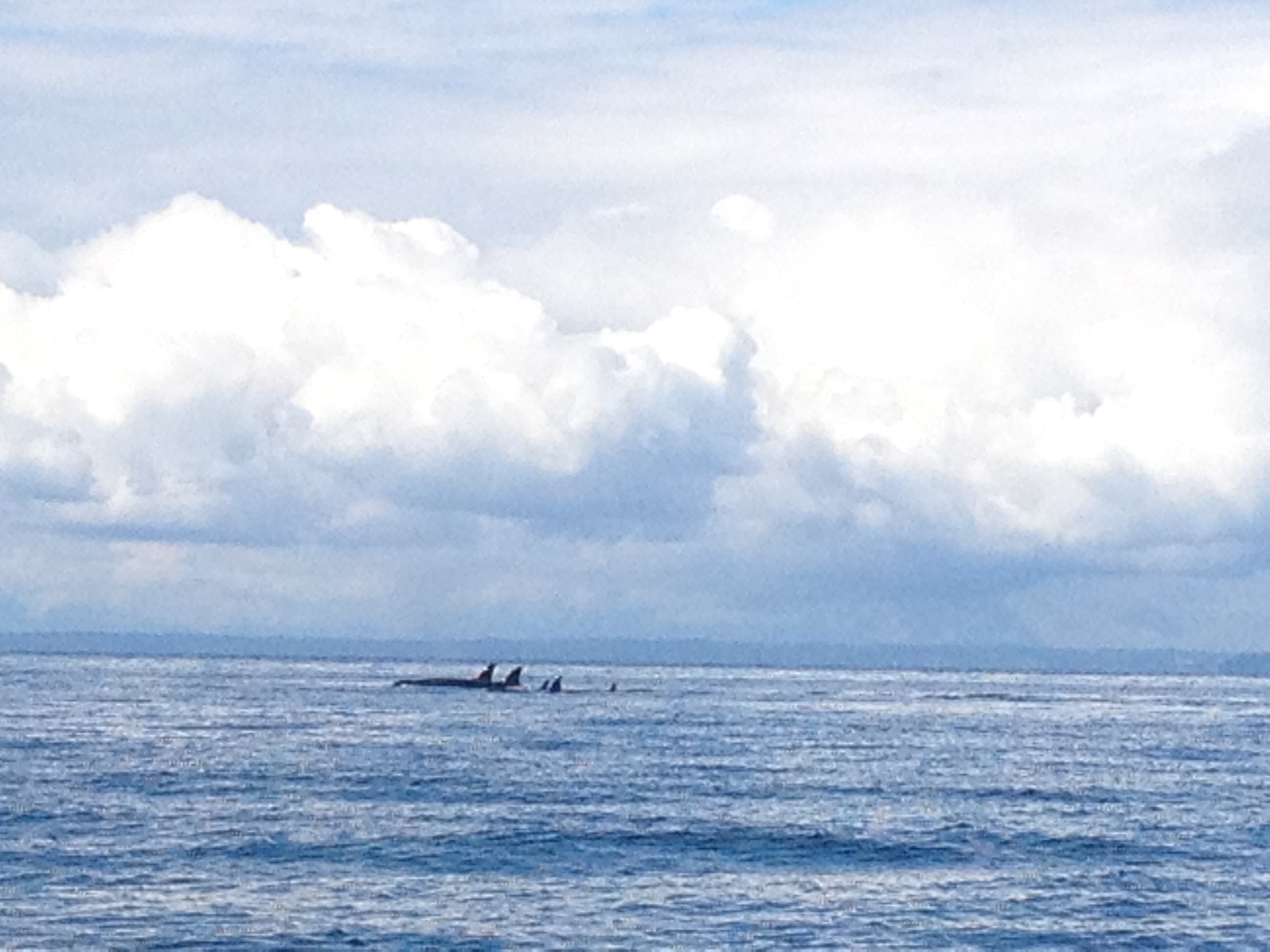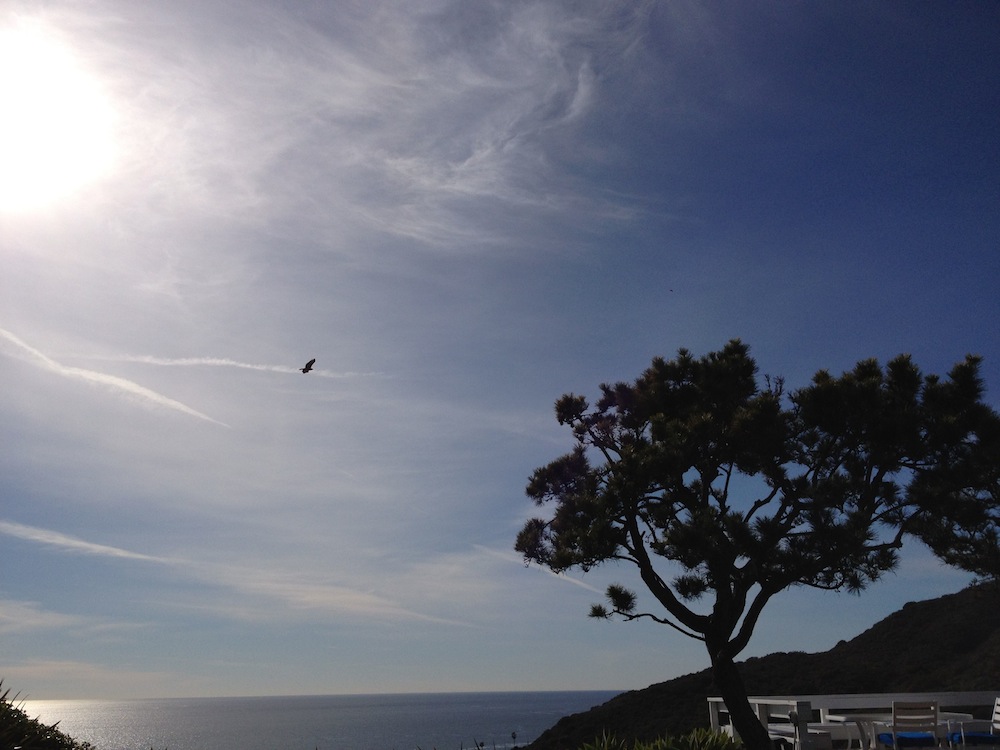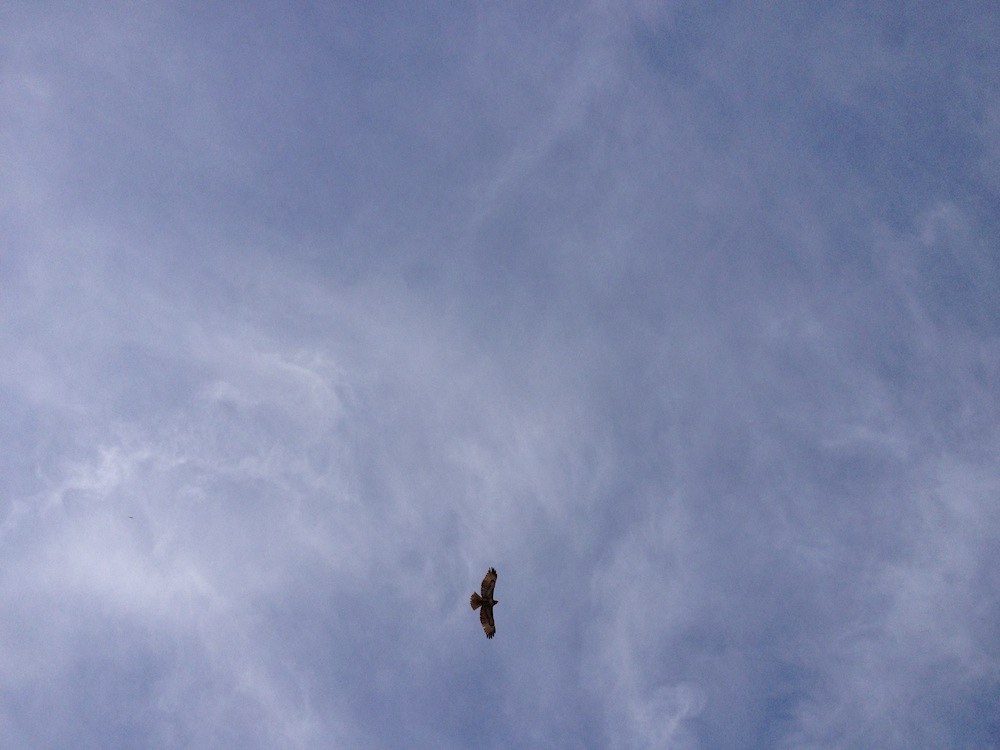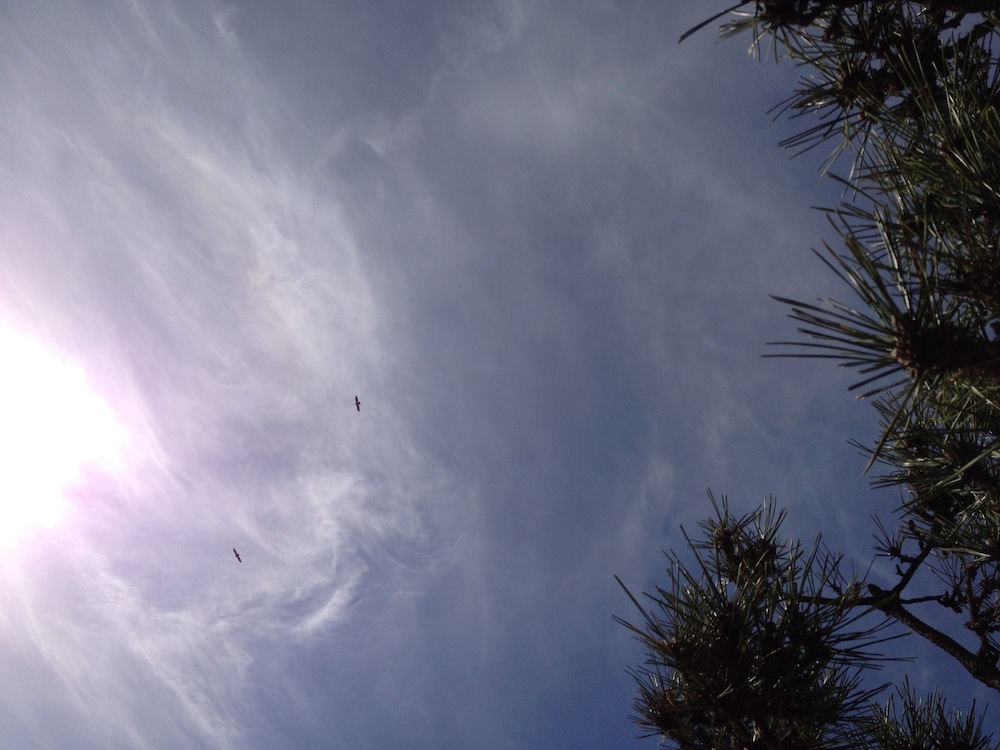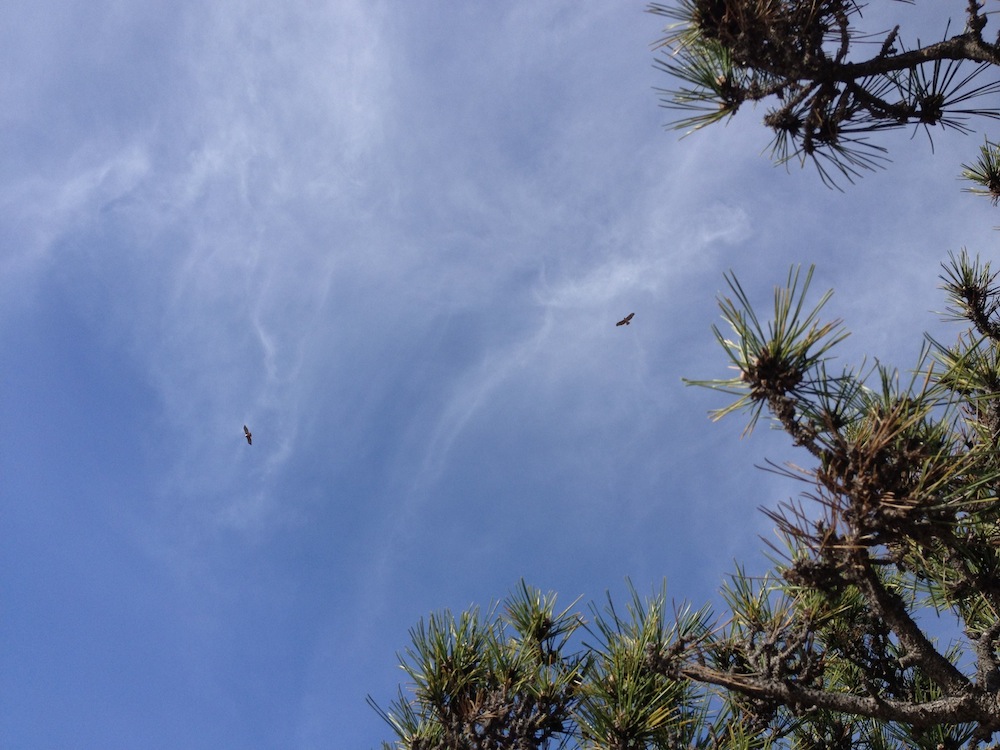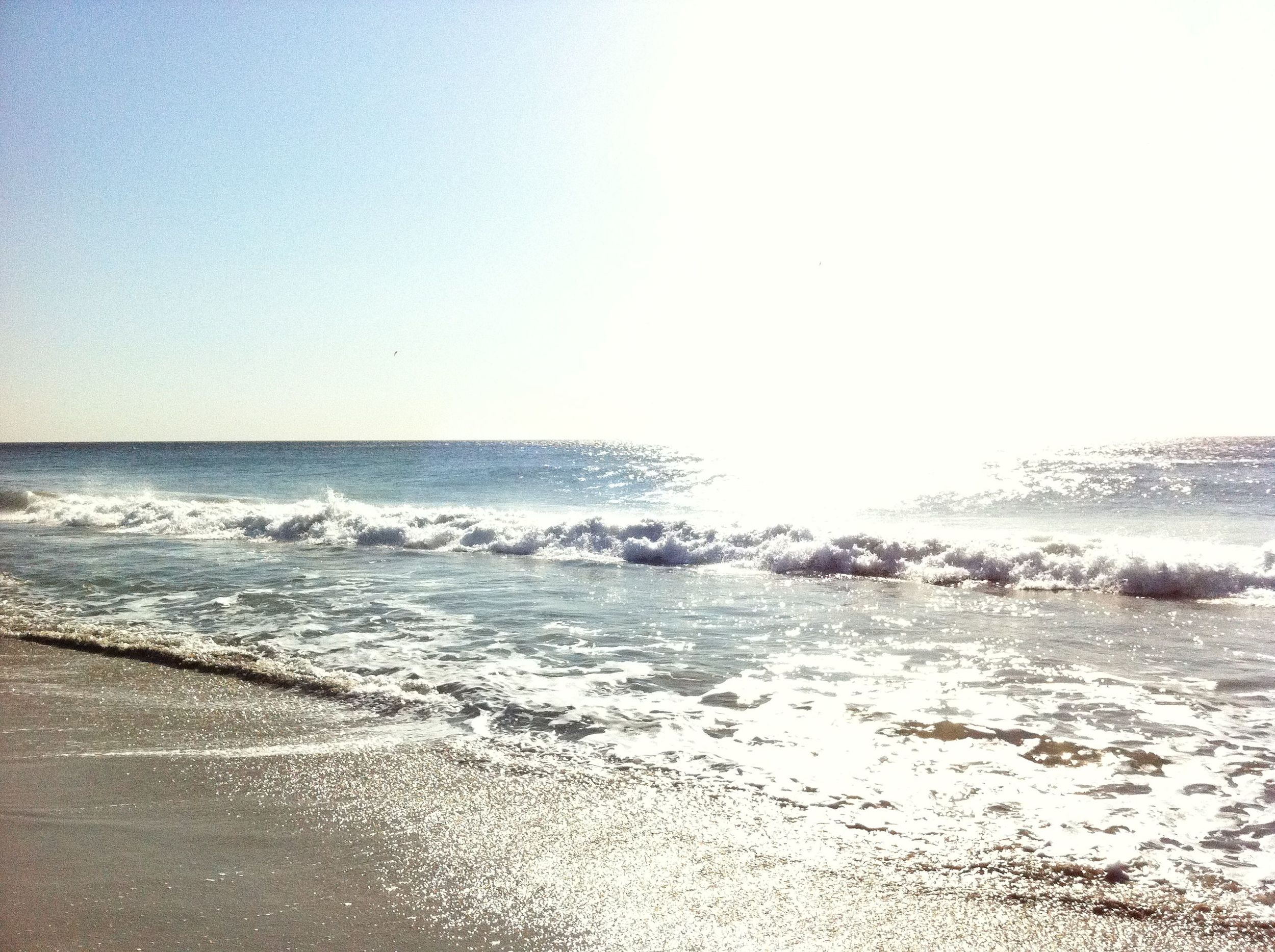I was lucky enough to read Beyond Words: What Animals Think and Feel by Carl Safina in galleys, a few months before publication. Carl and I had been introduced via email by a mutual friend, Pete DeSimone of Starr Ranch Sanctuary, and we had corresponded about owls and whales. A snowy owl had been visiting Carl's beach on eastern Long Island, and knowing my interest in owls in general, snowies in particular, he sent me photos and reports about the visitor. His book The View From Lazy Point had long been a favorite of mine. He makes science personal, writing about the beach he loves, the species he's studied, the world travels he's taken to observe animals in varied habitat. I like that he doesn't hide his love for the oceans and his commitment to the environment.
His new book Beyond Words, is brilliant, gets truly and deeply into the mind and emotions of animals--the inner lives of elephants, wolves, and killer whales. He talks about families, love, loyalty, betrayals, intense grief of different animal populations. He discusses endangered species, in some cases the erosion of protections, the reality of humans hunting for sport and trophies and monetary gain. The sections on elephants, what happens when humans poach them for ivory, delineate with such compassion the devastation and grief felt by the family members left behind.
His work with killer whales--a name he prefers to orca, deriving as it does from the Latin Orcinus Orca and referring in an inescapably demonizing way to Orcus, god of the underworld--took him to San Juan Island and Haro Strait. He discusses two populations--transients, who hunt mammals, such as sea lions--and residents, who eat fish, mainly salmon. With Ken Bascomb he listens to the whales via hydrophones, chirps and whistles and clicks. He differentiates their echo-sounding sonar from communications. They form strong family units and stay together for decades, for life. They kill for food, and it's brutal to watch the transients go after seals or California Gray Whales. But killer whales are social beings, very curious, and love to play; they seek attention from other killer whales and from people they encounter. Carl quotes an observer who said they "look through their otherness at you."
He writes about the tragedy of killer whales being netted, taken captive for aquarium exhibits--what it's like for a mother whale to see her baby captured, unable to stop what's happening. And how the baby whale feels, ripped from a mother and the voices of her family, "going from the limitless ocean to the confinement of a concrete teacup, the terror and confusion..."
Overfishing and chemical run-off contribute to a combination salmon shortage and toxic load that is endangering killer whales. They can live forty to fifty years, but the population isn't reproducing. Recovery of the salmon fishery doesn't look likely, and the Pacific Northwest's logging industry isn't about to stop using river-killing fertilizer and flame retardants that get into the food chain, into the plankton eaten by the fish eaten by the seals eaten by the whales.
After reading Beyond Words I felt so happy to give it a quote. Carl came into New York to record the book for audio, and we finally met. He's a kindred spirit. Now that we're friends, do you think I can ask him to write something on cats?
I want to know what mine think and feel. I keep them inside partly for their own protection and also to keep them from following their natural instincts to hunt birds and mice, but they are still wild things, with distinct personalities, and eyes full of soul. When Maggie died a few years ago, I watched Mae-Mae and Maisie grieve. The two survivors returned again and again to the spot where they'd last seen Maggie, before I buried her. They meowed, and it sounded like keening. I would have given anything to be able to read their minds, to understand their feelings.
Carl's book helps me to know that such understanding is possible. Translation may be harder, but I keep trying. I share my house with these creatures, and we all share the planet with a whole lot more, and I am grateful for all of them, and for this book.
Species are connected to each other, and we to them. When we forget that, we forget our humanity.
As I write this, social media is full of new about the death of Cecil, a thirteen-year-old lion in Zimbabwe. Walter J. Palmer, an American dentist, paid $55,000 to hunt him down. Cecil was lured out of Hwange National Park, the sanctuary where he lived, and was shot with a bow and arrow. There's a photo of Palmer grinning over the corpse. Cecil looks majestic and dignified even in death, but they beheaded him and left his corpse to rot. The dentist's grin makes me sad--the whole story does. I wish I could have given him a copy of Carl's book. Maybe Cecil would still be alive if he'd read it.
Maybe the planet will be healthier if we all do.
No Man is an Island
by John Donne
No man is an island, Entire of itself, Every man is a piece of the continent, A part of the main. If a clod be washed away by the sea, Europe is the less. As well as if a promontory were. As well as if a manor of thy friend's Or of thine own were: Any man's death diminishes me, Because I am involved in mankind, And therefore never send to know for whom the bell tolls; It tolls for thee.

